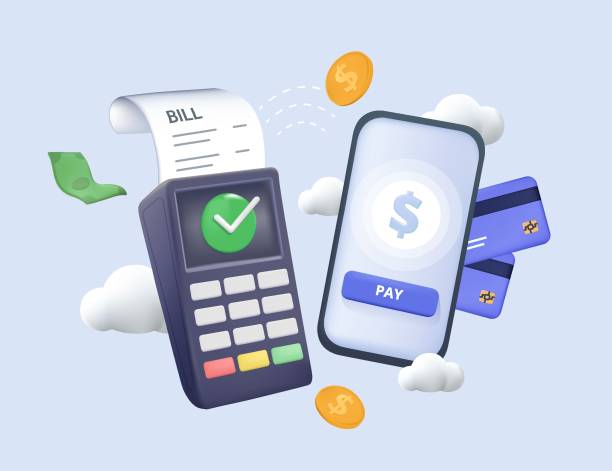In today’s digitally-driven world, the allure of entrepreneurship has shifted gears. No longer confined to brick-and-mortar establishments, the realm of business has expanded into the vast, interconnected web of the Internet. With this evolution comes a tantalizing prospect for aspiring entrepreneurs: buy an online business. But is it worth it? Let’s embark on a journey through the digital landscape to uncover the hidden gems and potential pitfalls of purchasing an online business.
The Digital Frontier: An Overview
The internet has revolutionized the way we do business. From e-commerce stores to digital services, the opportunities for online ventures are seemingly endless. But amidst this vast expanse, navigating the terrain can be daunting. This is where buying an existing online business can offer a shortcut to success.
The Pros of Purchasing an Online Business
- Established Infrastructure: Unlike starting from scratch, buying an online business provides you with a pre-existing framework. This includes everything from the website and branding to customer base and revenue streams. You’re essentially stepping into a ready-made operation, saving you time and effort.
- Proven Track Record: One of the most significant advantages of buying an online business is the ability to assess its performance history. You can review financial records, traffic analytics, and customer feedback to gauge its success. This transparency empowers you to make informed decisions and mitigate risks.
- Instant Market Access: Building a brand and attracting customers takes time. By purchasing an online business, you bypass the initial stages of market penetration. With an existing audience and brand recognition, you can hit the ground running and capitalize on established relationships.
- Scalability: Many online businesses are designed for growth. Whether it’s expanding product lines, optimizing marketing strategies, or tapping into new markets, there’s often untapped potential waiting to be unlocked. As the new owner, you have the flexibility to scale the business according to your vision and goals.

The Cons of Purchasing an Online Business
- Upfront Investment: Buying an online business typically requires a significant upfront investment. Depending on factors such as the business’s size, profitability, and potential for growth, the purchase price can vary widely. It’s essential to conduct thorough due diligence to ensure you’re getting value for your money.
- Risk of Hidden Liabilities: While financial records provide insight into a business’s performance, they may not reveal underlying liabilities. These could range from pending lawsuits to unresolved customer disputes. Conducting comprehensive due diligence, including legal and financial audits, can help uncover any potential red flags.
- Dependency on Existing Systems: Acquiring an online business means inheriting its existing systems and processes. While this can be advantageous in the short term, it may limit your ability to implement changes or innovations. Assessing the scalability and adaptability of the business’s infrastructure is crucial to long-term success.
- Integration Challenges: Merging a newly acquired business into your existing operations can present logistical challenges. This includes integrating technology platforms, aligning branding strategies, and managing personnel transitions. Effective planning and communication are essential to minimize disruptions and ensure a smooth transition.
Making an Informed Decision
So, is it worth it to buy an online business? The answer depends on various factors, including your risk tolerance, financial resources, and long-term goals. While purchasing an online business offers undeniable advantages, it’s not without its challenges. Conducting thorough due diligence, seeking expert advice, and carefully evaluating the potential risks and rewards are essential steps in making an informed decision.

Exploring the Online Marketplace: Types of Online Businesses
In the vast expanse of the digital world, there exists a diverse array of online businesses, each catering to different niches and industries. Understanding the various types of online businesses is crucial for prospective buyers seeking to enter this dynamic marketplace. Let’s delve into some of the most prominent categories:
E-Commerce Stores
Perhaps the most recognizable type of online business, e-commerce stores sell products or services directly to consumers over the Internet. These can range from specialized niche stores selling handmade crafts to large-scale retailers offering a wide array of products. Platforms like Shopify, WooCommerce, and Amazon have made it easier than ever to launch and operate e-commerce stores.
Subscription-Based Services
Subscription-based businesses offer products or services on a recurring basis in exchange for a subscription fee. This model spans various industries, including streaming services (e.g., Netflix, Spotify), software-as-a-service (SaaS) products (e.g., Adobe Creative Cloud, Microsoft Office 365), and subscription boxes (e.g., Birchbox, Blue Apron). The recurring revenue model provides stability and predictability for businesses.

Content and Media Platforms
Content-driven businesses focus on creating and distributing digital content to attract and engage audiences. This category includes blogs, online magazines, podcasts, video channels, and social media influencers. Revenue streams may come from advertising, sponsorships, affiliate marketing, or premium content subscriptions. Content platforms thrive on delivering valuable and engaging content to their audiences.
Online Marketplaces
Online marketplaces connect buyers and sellers, facilitating transactions between them. Examples include e-commerce marketplaces like eBay and Etsy, service marketplaces like Upwork and Fiverr, and peer-to-peer marketplaces like Airbnb and Uber. These platforms provide a centralized hub for conducting business and often generate revenue through transaction fees or subscriptions.
Digital Products and Services
Businesses in this category offer digital products or services that can be delivered electronically over the Internet. This includes software applications, digital downloads (e.g., ebooks, music, software), online courses and training programs, and digital consulting services. Digital products and services leverage the scalability and accessibility of the internet to reach global audiences.

Affiliate Marketing Websites
Affiliate marketing websites earn commissions by promoting products or services from other companies. Affiliates drive traffic to the merchant’s website through various marketing channels (e.g., content marketing, email marketing, social media), and earn a commission for each sale or lead generated. Niche affiliate websites focus on specific industries or product categories to target relevant audiences.
Dropshipping Businesses
Dropshipping involves selling products to customers without holding inventory. Instead, the seller purchases products from a third-party supplier who ships them directly to the customer. Dropshipping businesses benefit from low upfront costs, as they don’t need to invest in inventory or warehouse space. Popular platforms like AliExpress and Oberlo facilitate dropshipping operations.
Understanding the different types of online businesses allows prospective buyers to identify opportunities that align with their interests, skills, and investment goals. Whether it’s diving into e-commerce, building a content empire, or leveraging affiliate marketing, the online marketplace offers a wealth of possibilities for entrepreneurial success.
Conclusion: Buy an Online Business
In the ever-expanding digital landscape, buying an online business represents a unique opportunity to tap into existing markets and unlock untapped potential. From established infrastructure to proven track records, the benefits are compelling. However, it’s crucial to approach the process with caution and diligence to mitigate risks and maximize rewards. By leveraging the power of online entrepreneurship, you can embark on a journey of innovation, growth, and success in the dynamic world of e-commerce.












